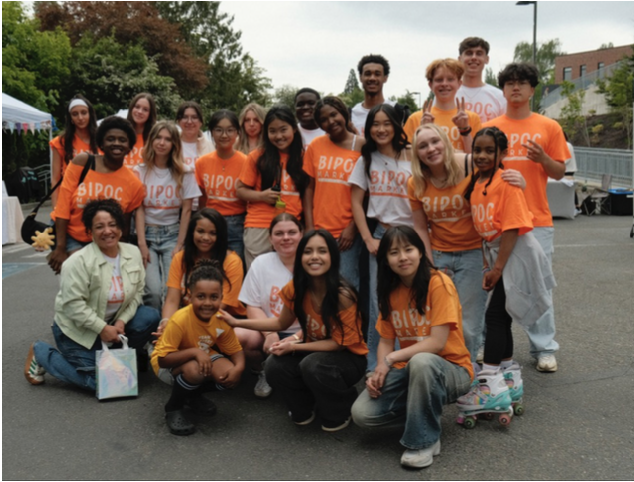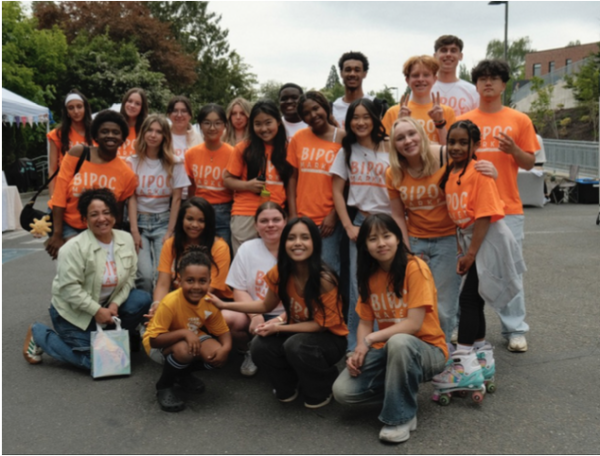IA Engagement: Period Poverty
November 5, 2022
The issue and political engagement that I chose is period poverty. This topic is a political issue that I understand the significance of as a public health crisis, but seems vague and distant from me, since I have never experienced it first-hand nor been friends with somebody who has. Volunteering for a feminist art exhibition on the topic of menstruation and having a friend who hosts an annual period product drive made me invested in period poverty. However, I think I can never truly empathize with those who cannot purchase menstrual products without realizing how privileged I am. Because of this I decided to interview someone with first-hand experience and who is deeply devoted to the issue. Therefore, period poverty is just numbers and headlines, and I want to address this issue further and be a part of it. Growing up in Chengdu, China, and Seattle, U.S.A., I immerse myself in a bi-cultural upbringing and know the vast differences between the two cultures. As someone who menstruates and has participated in multiple period product drives in the U.S. and China, I recognize that this a crisis that has long-term consequences that people often overlook. This issue is particularly critical in China, where period poverty is absent in the narrative and not recognized as a public health crisis. If there was a spectrum of period poverty severity, Scotland – which offers period products free of charge – would be on the better end, the U.S. would be in the middle and China would fall behind a little bit. Exploring my research question will allow me to address the key concepts of poverty, inequality and human rights in Global Politics. Thus, my research question is: to what extent do the communities of Seattle and Chengdu have similar methods of addressing inequality in the form of period poverty?
When virtually 1 in 5 American girls is absent from school on a monthly basis due to a lack of menstrual products, period poverty becomes a public health crisis. Period poverty refers to inadequate access to menstrual products, hygiene tools and education, causing physical and mental struggles for women. 500 million people lack access to menstrual products and hygiene facilities in the U.S. alone (due to a lack of data and limited research on periods worldwide), and 16.9 million people who menstruate in the U.S. are living in poverty. There are social, cultural and economic barriers to period products, sanitation facilities and education. In addition to the physical strands of period poverty, the stigma around menstruation with uncleanliness instead of acknowledging it as biologically healthy and normal exacerbates this global health issue. The cultural shame and embarrassment associated with periods avert people from including them in the conversation of the public domain, consequently preventing discussions about access to products, the tampon tax and education on periods in schools.
This crisis can also be analyzed through the lens of international relations from multiple perspectives. According to the United Nations Fund for Population Activies (UNFPA), human rights are defined as the rights that every human being has by virtue of his or her human dignity. When individuals lack access to healthy and clean bathing facilities and effective means of managing their menstrual hygiene, they are not able to bleed with dignity. Thus, menstruation is inherently linked to human dignity and subsequently human rights. Gender inequality, poverty, humanitarian crises, the COVID-19 pandemic and cultural taboos combine to make the period a time of deprivation and stigma, which can undermine people who menstruate their enjoyment of full fundamental human rights. According to the Marxist theory, inequality and poverty are inevitable byproducts of the capitalist mode of production and cannot be eliminated without fundamentally transforming the structures of capitalism. Period products are currently taxed at the highest rate of 23% worldwide, making these essential items inaccessible to many sections of society. The issue of period poverty and affordable products for all cannot be tackled under a profit-driven capitalist system. Sanitary products have been and will continue to be commodified by capitalist industries, as luxury items, rather than basic necessities that should be guaranteed for all due to their full enjoyment of human rights.
Menstruation becomes an issue often neglected largely due to its social meaning, as ascribed to it by patriarchy. Comprehending this through the perspective of feminist theory requires that it be analyzed in the larger historical and social context. Under the male gaze in a patriarchal society, women ought to fulfill the expectations regarding so-called femininity. Modern society is a surveillance society where individual conduct is observed and analyzed. Women’s “self-value” is a reflection of the heteronormative narratives constructed by the authoritative male and regulates their bodily movements in conformity to the male gaze. During their menstruation period, women traditionally behave in a prescribed manner to conceal the fact that they are undergoing normal physiological changes in their bodies. Therefore, women are objectified as puppets maneuvered by the authoritative male to suit their expectations and stereotypes.
This article serves as an engagement for the author’s Global Politics Internal Assessment. It has been edited for length and clarity and to uphold Inkwell’s standards for published content.









